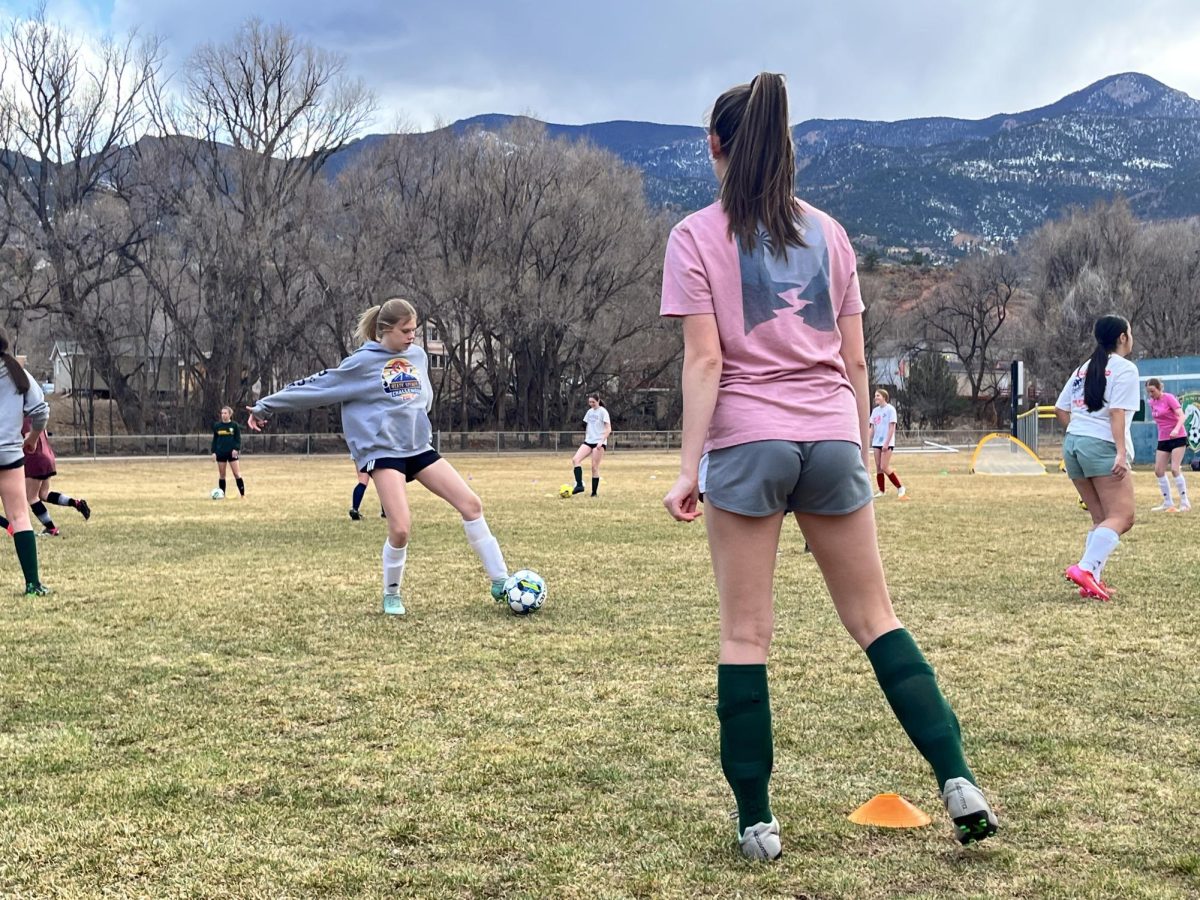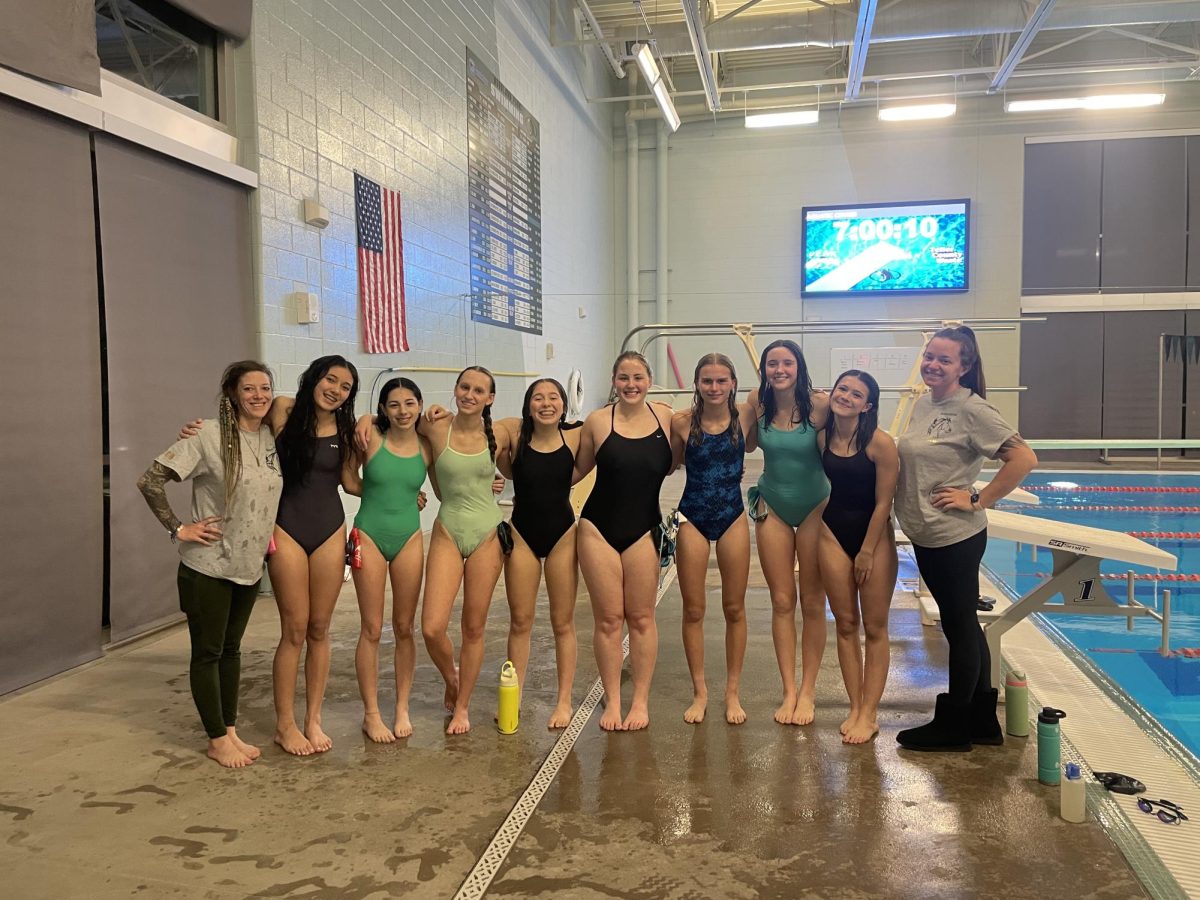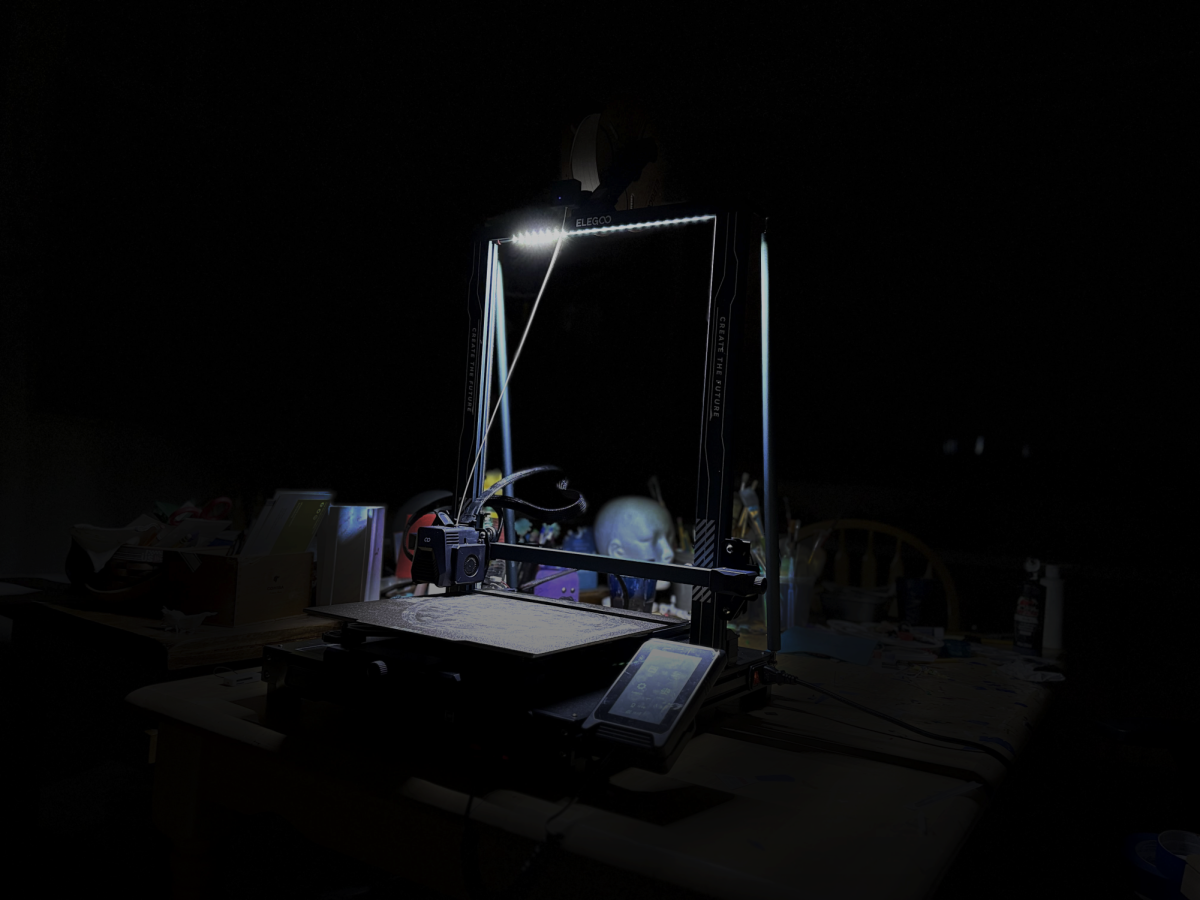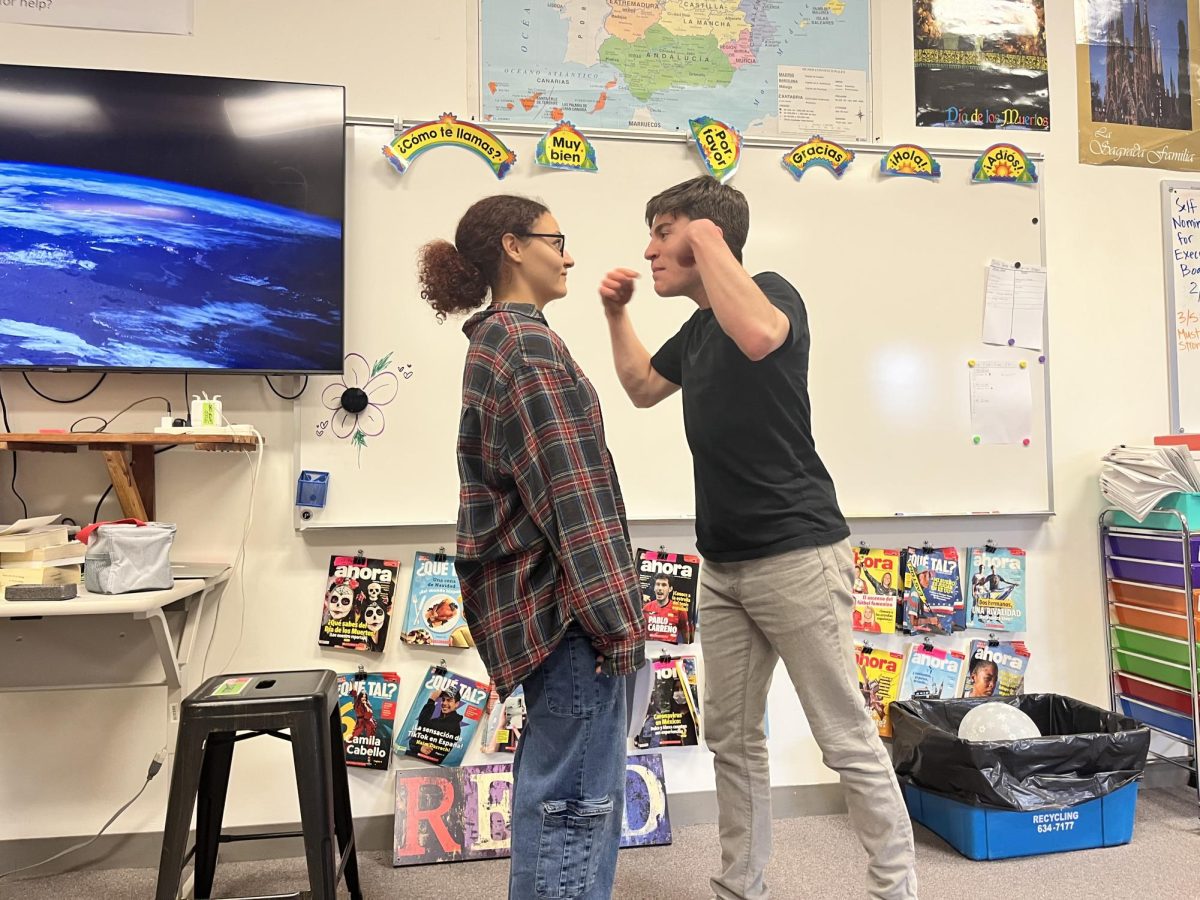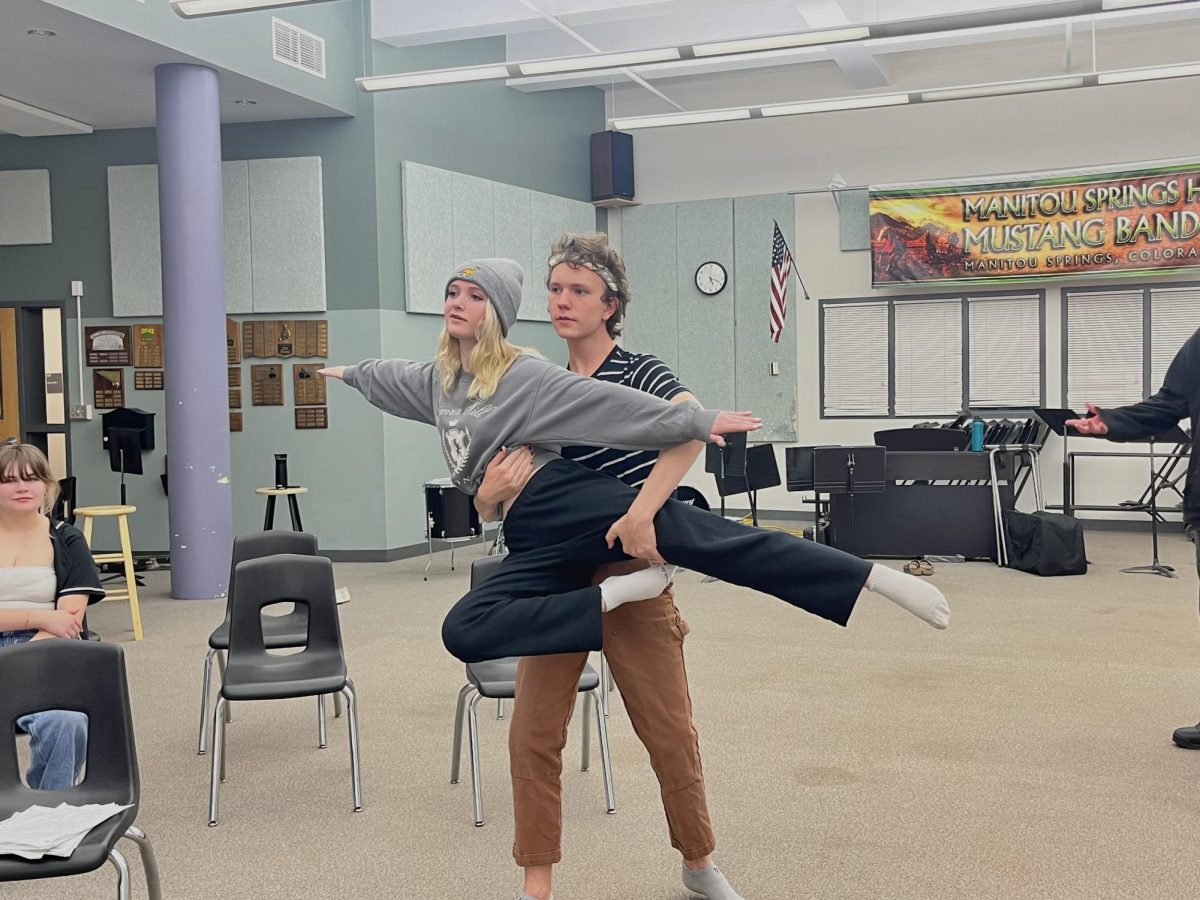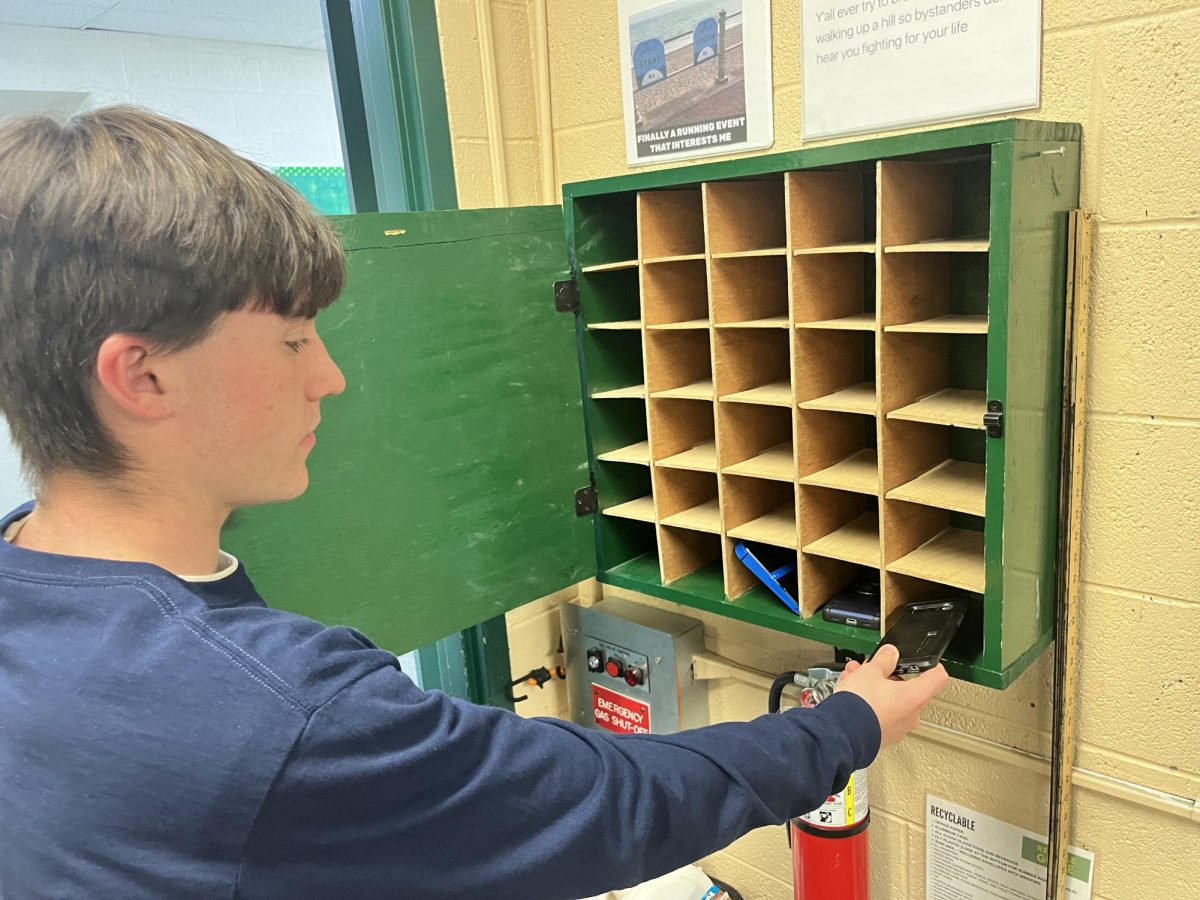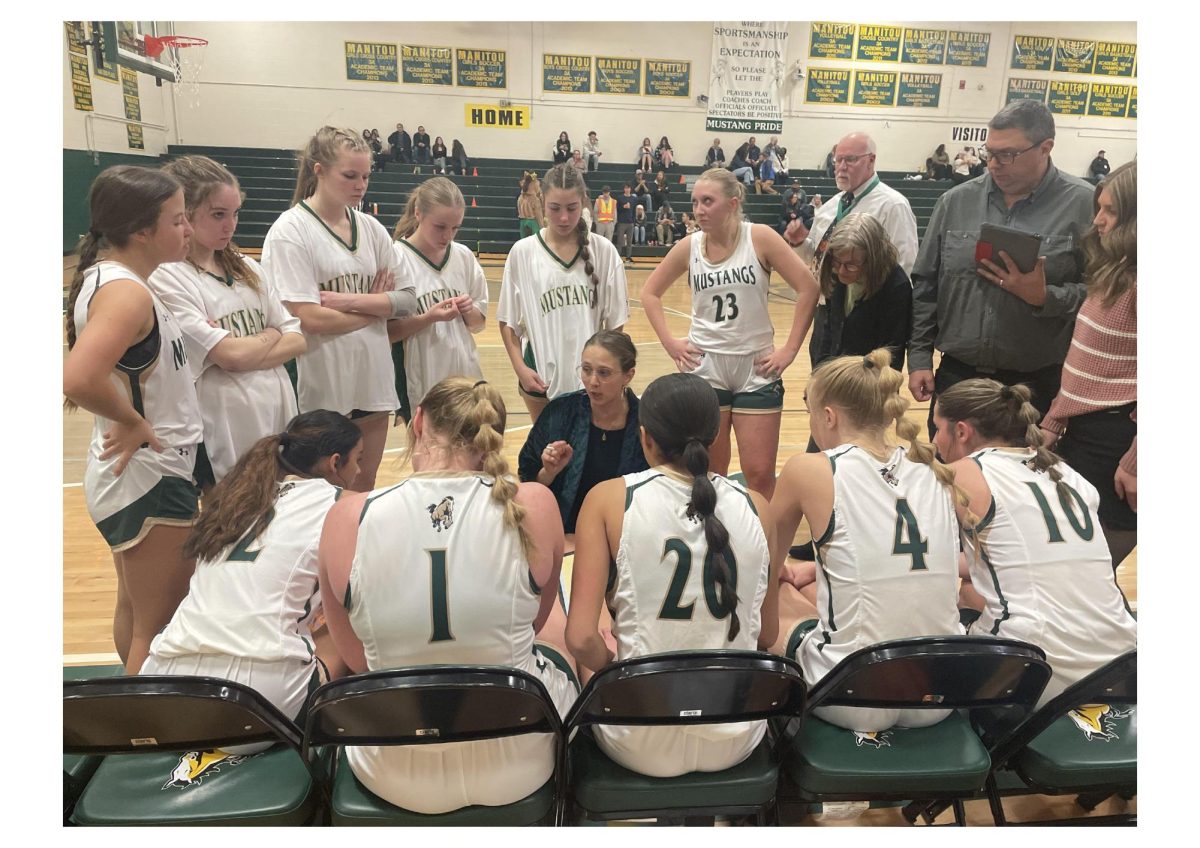The question of what role technology can play in education has arisen once more at MSHS. At the start of the 2024-2025 school year, MSHS began enforcing a new school wide cell phone policy that required that phones be put away in class or Advisory, and teachers are required to write referrals for any phones they see during this time.
Brooke Ferguson (11) has noticed a shift in the amount of social interaction in her Advisory since the start of this year. She said that many of the students in her advisory class are relatively quiet, and the cellphone policy has given students an opportunity to converse.
Ferguson has noticed a change in her relationship with technology at home since the new cell phone policy was set in place. “I have a slightly stricter relationship with technology now,” Ferguson said. “I have less investment in social media and the things that I use my phone for.”
Ferguson has found interest in other activities at home recently. “I feel like I’m more likely to not give in to the impulse to use my phone in free time and downtime,” Ferguson said. “Instead, I find myself picking up the book that I’m reading, or hanging out with my family more.”
Riley Walker, an English teacher at MSHS, has noticed more social development between his students. “I’ve noticed that they are interacting more in depth, and making more eye contact,” Walker said.
Specifically in his Yearbook class, Walker feels that students have begun filling their free time with more meaningful interactions. “Between specific tasks last year and the year before, kids would be on their phones a lot,” Walker said. “Now that they’re not allowed to use their phones, I’ve printed off coloring sheets for them; and they’ll have coloring contests and hang out and speak to each other and have fun, and It’s all spontaneous to them. That has been a total change.”
Walker believes that technology like cell phones are designed to capture attention and replace the ability to problem solve, which interferes with how problem solving is taught in school. “Schools need to teach kids how to use the technologies that will help them contribute to their society and that they’ll use in the workplace,” Walker said. “But at the same time, part of school is to teach them the cognitive skills that technology supplants, like the ability to think through a problem rather than just look something up.”
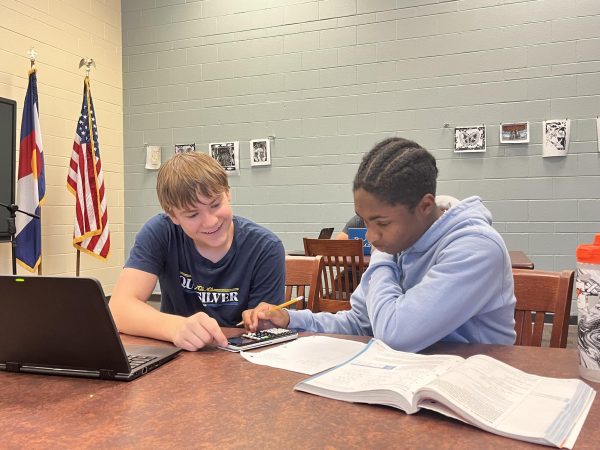
Walker thinks that there are very few uses for phones as an educational tool. “I used to say in classes that the only reason the cell phone was invented was so that you could look up words that you don’t know,” Walker said. “I really think that phones are counterproductive when it comes to learning, almost in almost all cases.”
Walker feels that looking up a word is not meaningful learning, and phones don’t provide memorable lessons, compared to the repeated engagement given by a teacher. “You don’t learn something by hearing it once or seeing it once,” Walker said. “If I look something up on the internet because I’m reading a book and I just want to know what it means, it’s really just to move me through an impediment and not to learn something.”
He believes that pulling out a phone becomes muscle memory at some point because they have been allowed to fill every minute of spare time. “I know teenagers really hate to hear this, but like they’re doing it because they haven’t developed the executive functioning enough to decide against pulling out a phone because it isn’t the time,” Walker said. “They’re very much in think-do mode, and there’s no bridge between the two.”
Walker compares pulling out a cellphone without a thought to instinctively buying cigarettes. “When I used to smoke, I would drive past the 711 and just turn in automatically,” Walker said. “I’d be halfway up to the counter before I even realized what was happening, and that compulsive behavior with cell phones is really similar, and it’s deadly.”
Walker observes that teenagers enjoy conversing and doing new things, he advises students to explore spending time off technology. “Allow yourself to notice that you’re bored and you want to do something else,” Walker said. “Do something outside, something with friends, something new, and you will notice that cell phones and video games and technology are just less interesting than life is.”
Student Body President Yonas Hanson (11) feels that students’ inability to be on their phones directly correlates with their productivity during Advisory. “Having access to phones always leaves an easy out of getting work done or being engaged in the classroom,” Hanson said. “So limiting access to our phones and headphones takes away our ability to have that easy out, and I think it generally positively affects students’ work.”
Hanson feels that although technology can be a tool for students, it can also grasp their attention and take hours that they didn’t intend to lose. “Technology can be a simple one minute distraction that leads to a full day of non-productivity,” Hanson said.
Walker feels that there’s a great deal of hypocrisy surrounding adults telling kids to avoid being on their phone, when the adults themselves have a hard time taking a break from screens all the same. “I don’t use a smartphone anymore, and not using my smartphone has drastically improved my life,” Walker said. “It drastically improved my relationship with my wife, my home life, my ability to pay attention to things and my satisfaction with my life. Of course, part of that means that I’m bored more, but making that shift makes us more fully human.”












